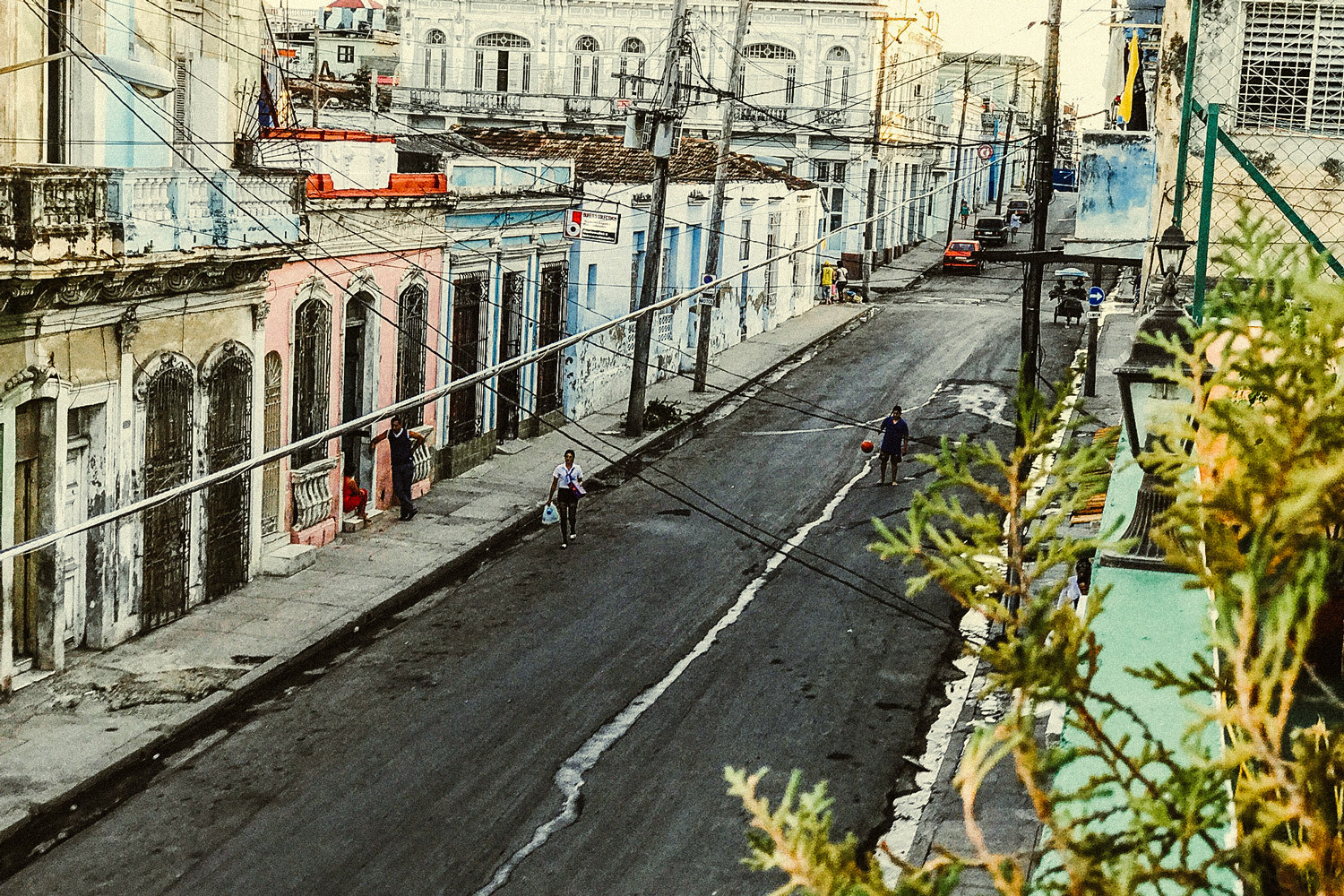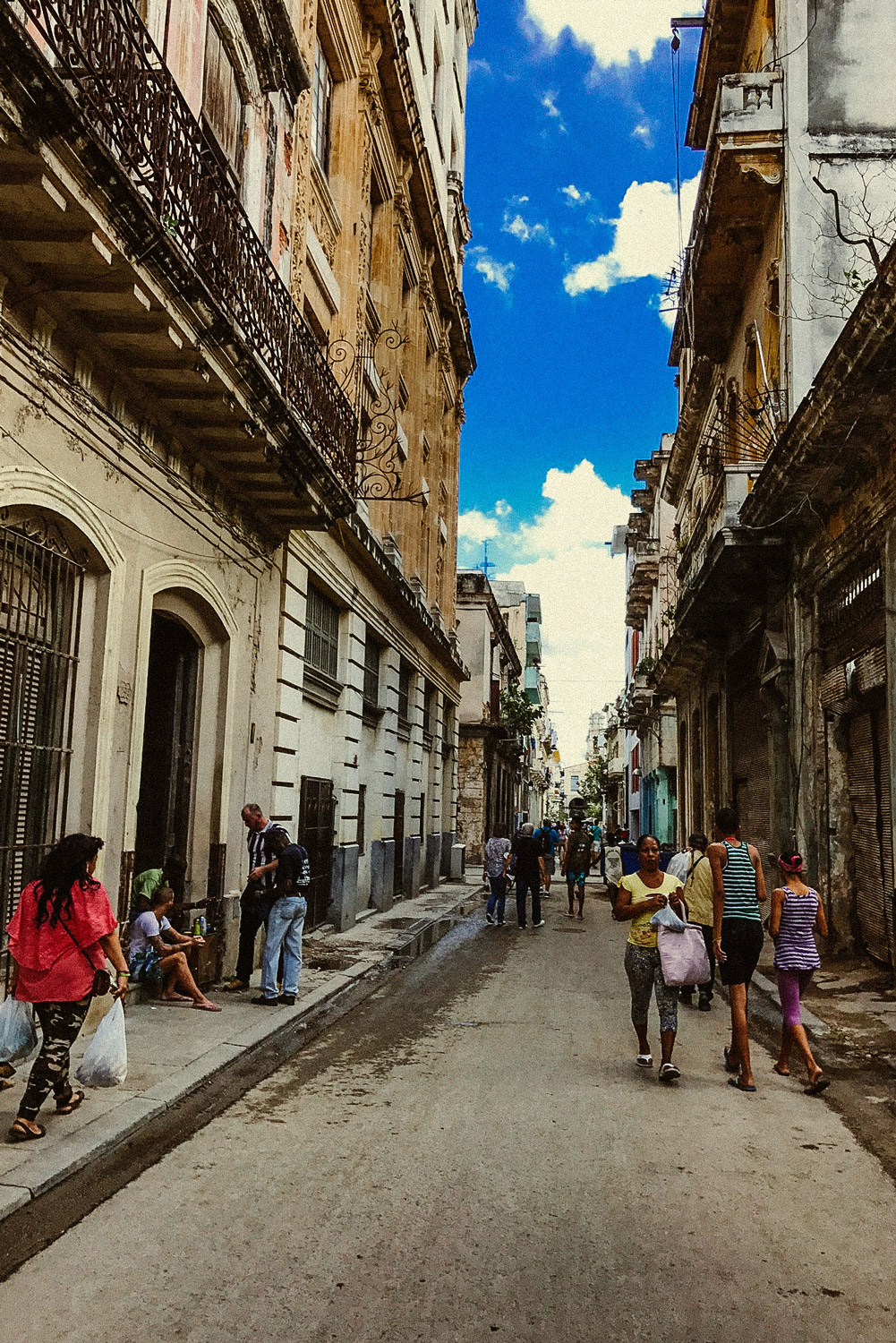Former Eugene mayor Kitty Piercy and her husband, David Piercy, went on a trip to Cuba earlier this year. After nearly a century of United States presidents refusing to respect Cuba, President Obama’s visit there during his second term signified a less hostile relationship between the countries, allowing for tourism to resume. Piercy recounts her experience as “a little taste,” because at the time of her trip you had to be accompanied by a guide in order to be in the country.
President Donald Trump recently announced, “I am canceling the last administration’s completely one-sided deal with Cuba.”
In effect there will only be a few changes, but one of them will be tightening the restrictions on travel again. The Trump administration says it will begin strictly enforcing the authorized exemptions that allow travel between the U.S. and Cuba.
Eugene Weekly: When did you go to Cuba and for how long?
Kitty Piercy: It was a couple weeks after I stopped being mayor. We had been looking for a trip that wouldn’t be too strenuous, not too far, but very interesting. And I always feel like one of the jobs of the old mayor when the new mayor comes in is to get out of the way. So it seemed like a good opportunity to go for a vacation, and we have always been interested in Cuba and the history of Cuba, so that’s where we decided to go and it was a really good choice.
Did you go to just experience the culture or was there a different focus?
We were gone for six days with one day for getting there and one day for coming back. What’s interesting is the group that came after we did was the first one able to actually land in Cuba, where before that you had to have somebody meet you and go with you. I think things are loosening up in a lot of ways. We went with the Road Scholar program, which is a person-to-person program to give you a lot of opportunity to actually meet with people there. I think if we were on our own we probably would’ve covered more ground but not gone as deeply into learning the culture. Of course you’re learning it the way they want to deliver it to you. But it was really interesting and I appreciated that opportunity a lot.
How are Cubans able to have such widespread access to health care and education despite their economic strangle?
The infrastructure is very poor, but everybody has a house, a shelter — everybody. There are no homeless. Everybody has access to food and everybody has access to education and health care. It’s not fancy. It’s not luxurious. But everybody has that opportunity and those rights and I think there’s a lot to be learned from that. What they’re struggling with right now is that, for instance, a doctor or teacher makes $20 a month, which sounds like nothing, but all of those other things are already taken care of.
Still, they are trying to get some kind of bonuses for people. Our guide’s mother is a gynecologist, and her father is a taxi driver, and he makes a lot more money than her mother, the gynecologist. I think these tour guides actually do pretty well themselves because they get tips from the people who are there plus the money they are paid from the government to do the touring. I think that’s another example of those bonuses they are trying to figure out how to do without losing the basic social service network that they have in place.
When you were there did you eat at restaurants that were private or was it mostly government provided food?
We went to mostly private. The way I’m understanding it is probably the tours have some kind of deal and the government has some kind of deal with these private restaurants, so I don’t know exactly how that works out. The food was very good and the service was very good but it’s not what everyone has access to, that’s for darn sure. We had an experience where they gave us some pesos to go to the market to get an impression of what it’s like and how much you can buy with your pesos. You can buy some but not a lot with the allocation that you get each month. So that was an interesting experience for us, just a little taste of what it’s like.
The other thing I was going to tell you is that they have days when things become available. For instance, if you save up and want a washing machine, they are not available every day. There will just be one day where in the store there’s washing machines available, so everybody comes down and lines up, those who can afford it, to get a washing machine. You get six eggs a month, so if you want extra eggs there was a line of people to get a few extra eggs too. So it is not a luxurious economy.
What was your impression of the Cuban people’s thoughts and feelings about their country?
This young man, who got a little extra cash for him to come do these informal conversations with us, commented that he understands [Cuba’s system of government] but he feels it’s holding him back … his generation is feeling like they’d like to get out in the world more and have an opportunity to go to other places and have other experiences. To go and play music in other places. To do art in other places. They feel like they have a lot of limitations on their mobility, both income mobility and just general mobility in the world. They would like things to be looser.
Did you see or hear about any form of protests or demonstrations from any Cuban people?
There was one that looked to me like it was being put on by the Cuban government. They had what we would call a hippie bus with posters on it about wanting the embargo to go away. But it was parked near the hotel and it really looked like it belonged to the government as opposed to a spontaneous protest. But it looked like they were trying to make it appear as the Cuban people’s desire. We didn’t see any protests as we were taken where we were taken. We visited Havana and two other cities and saw a lot of art and the music and met with old people and young people and did a lot of things, but it was still very controlled in terms of what you had access to. But in the evening, you could go out by yourself, so we did that every evening and that was fun. A lot of music and a lot of street dancing. You felt no overwhelming police presence, I would say.
Would you want to go back without a tour guide in the future?
Yeah, I think I would. I don’t know if we’ll ever go back, but I think it would be very interesting to go back. Nobody knows what’s going to happen with our own country right now, but if things stay open then I think things will continue to evolve there because that’s what they all seem to want.
Did you take anything back from Cuba? Any souvenirs? Cigars?
That cigar thing is so interesting because it’s such a huge part of their culture and here I am in America where we are trying to get smoke out of the public places and so in the hotel in Havana, it’s a big old national hotel, and the whole patio was filled with people smoking their cigars and smoke is around all the time. And in my lifetime we’ve gone from having to have smoke around me all the time to not having to have smoke around me all the time, so it was a little bit of a shock to my system to not being able to find a place to sit outside around the hotel without the air being filled with tobacco. But it is one of the things they sell along with rum. Of course, we brought back some of each of those things for some people.
This Q&A has been edited for length and clarity.
Help keep truly independent
local news alive!
As the year wraps up, we’re reminded — again — that independent local news doesn’t just magically appear. It exists because this community insists on having a watchdog, a megaphone and occasionally a thorn in someone’s side.
Over the past two years, you helped us regroup and get back to doing what we do best: reporting with heart, backbone, and zero corporate nonsense.
If you want to keep Eugene Weekly free and fearless… this is the moment.

